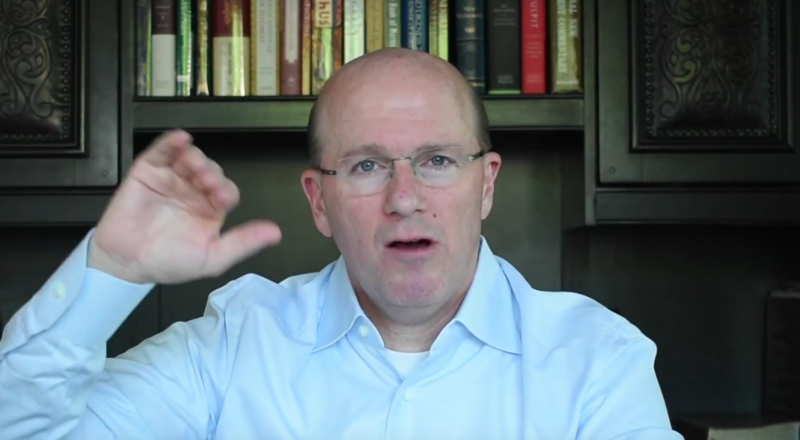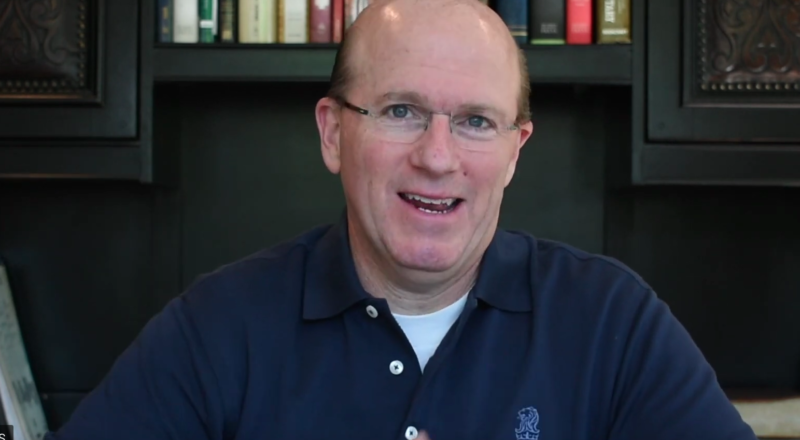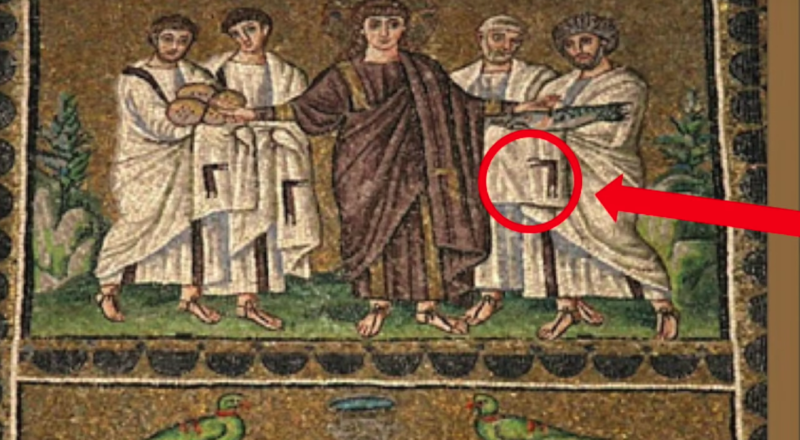This video explains tools for distinguishing between core eternal doctrines of The Church of Jesus Christ of Latter-Day Saints and practices and policies that may change according to revelation. The video also discusses that not everything a prophet utters is considered doctrine.
Okay. So today’s video I’m going to be talking about doctrine. What is doctrine and does it change? Some of the challenges or criticisms that are made of the church have to do with this topic. For example, things that prophets or apostles said, often long ago, that may seem crazy to us. For example, Brigham Young once said that people lived on the moon, which actually was a common thing. They called them moon men. Many in the 19th century did believe that. But today, you look back at that and say, “Well, that’s a crazy man. That couldn’t have been a prophet,” for example.
Or you’ll have prophets that did certain things that were then changed by prophets down the road, for example, who could hold the priesthood. Brigham Young made a change, and later President Spencer W. Kimball made a change to that. So, you could say, “Well, one of the prophets was wrong.” Or polygamy. Joseph Smith introduced polygamy and Wilford Woodruff stopped polygamy. So again, confusion over this, possibly, that somebody could criticize that things are changing with different prophets.
Another is teachings by different prophets that can contradict. And a great example, Brigham Young taught that we could progress after the Resurrection and the Judgment. After we are assigned to a Kingdom of Glory, there was such a thing as eternal progression. We can continue to progress. J. Reuben Clark taught the same thing. We also had James E. Talmage that taught this. On the other hand, you had people that taught just the opposite, that said once we were signed into a degree of glory, that was it. It’s Spencer W Kimball, Joseph Fielding Smith, Bruce R. McConkie. So which is it? So I’m going to talk about that. I will give the answer to that or the way to think of that here in just a minute. But first I’d like to start with a quote here from, this is actually on the Mormon Newsroom website under the topic of Approaching Mormon doctrine.
It says here, “Not every statement made by a church leader past or present, necessarily constitutes doctrine. A single statement made by a single leader on a single occasion often represents a personal, though well-considered, opinion, but it is not meant to be officially binding for the whole church. With divine inspiration, the First Presidency and the Quorum of the Twelve Apostles counsel together to establish doctrine that is consistently proclaimed in official Church publications. This doctrine resides in the four standard works of scripture, official declarations and proclamations, and the Articles of Faith. Isolated statements are often taken out of context, leaving their original meaning distorted.”
Now, one of the best things I’ve ever heard on trying to define what is doctrine, was a podcast. This is a podcast called the LDS Perspectives Podcast, and there’s an interview with Mike Goodman, who’s a professor down at BYU, religion professor at BYU, and he teaches his students about this topic.
So here’s a couple of my favorite quotes from there. “It’s absolutely crucial that we learn to differentiate between that which is meant to never change and that which may change. Oft times we look at something that has happened in the past in the church, which has changed in the present day, and we make a value judgment saying that means that they were wrong then, and that they’re right now. But when you do that, you end up in a situation where there’s no way of knowing if what they’re saying now will change, which ultimately means you’re in a bind where you can’t move forward. You don’t know what to hold on to, and as a result, what I found with my students is that I can effectively help them understand how to evaluate whether something is meant to be doctrine. Then they are able to go through their own revelation and their own intellectual efforts, come to understand whether that thing can or may change in the future.”
And then he went through and described how you can recognize these doctrines, and he had, really, three key steps. Number one, is it eternal? Are the prophets claiming it’s eternal? Has it always been taught as essential? Number two, are the current prophets, seers, and revelators unitedly teaching it? Notice it says current prophets, seers, and revelators unitedly teaching, not a one off.
If they’re not teaching it, that we can see evidence for it to be doctrine. Three, is it salvific or necessary for salvation, or is it only a process, a pattern of practice? Many things we get caught up into are not necessary for salvation. For example, how the earth was created. That’s not necessary for our salvation. It’s not salvific. Now, one other thing that is really interesting is if you say, well, is there a place where we can find our basic doctrines? There actually is a list in summary fashion of some key basic doctrines on LDS.org. What are the things that, to you, are critical to your testimony?
For example, some of mine are that God exists, that He lives, that Jesus Christ performed the Atonement, was crucified and was resurrected. That the Book of Mormon is divine and it is the witness of the Restoration in these latter days. That the priesthood, the power to act in the name of God and to perform ordinances in the name of God was restored to the earth. That we have modern day prophets, that there is a plan of salvation, that families are eternal through the sealing power that was restored to the Earth. Those are some of my non-negotiables there and I love the way Anthony Sweat talked about that. He says if you have those, you can be a lot more flexible on some of the other things that really aren’t as important, really, and it dovetails back with what Mike Goodman was talking about here.
He also talked about, really, that in the history of the Church Joseph Smith did not want to have a creed for the Church. He did write the 13 Articles of Faith and the Wentworth Letter and that was the closest time to maybe ever labeling out our doctrines in some fashion, some of our key beliefs, but there is not a lot of things that have been spelled out in black and white as far as any kind of a feeling of a creed. And Joseph loved that. He says, “we believe in truth wherever we find it and as it is revealed from time to time.”
Fast forward over a hundred years, we had different starving for answers, essentially, many latter day saints, and you started to have prophets and apostles starting to speak in a little bit more of a declarative fashion. Joseph Fielding Smith did a book called Answers to Gospel Questions and it was fairly a black and white statement. Bruce R. McConkie put out a book Mormon Doctrine and this is the doctrine of the church type of thing.
And it was again kind of more dogmatic, black-and-white thinking there. And today, if you fast forward to today, people want answers and they feel like they should have that immediately. You can ask Alexa anything or Google anything, and so it is a more challenging atmosphere to accept ambiguity. But if you look at many of the things there that are not critical to our salvation as an example, or top topics there, we don’t have answers on them necessarily. And we’ll share quotes from people that have said things that are prophets and feel like that’s the in the answer, but as I shared in the beginning, eternal progression, the Church came out and said, the Church has no position on this, and recognize people have made comments on both sides of this issue, but the Church has no official statement. And a few other quotes,
here’s Elder Oaks in April, 2014 General Conference. “Just because something is a policy or practice does not mean that it does not come from God or that the prophets are free to change it. It simply means that it can or may change without bringing into questions, prophetic reliability.” Mike Goodman again at BYU, he said, “I want to emphasize this. Whether something is a doctrine or not does not indicate: A, whether it is true or not. There are things that are not doctrine that are true; B, whether it came from the Lord. The Lord is able to give policies, practices, and things that aren’t doctrines just as much as he’s able to give doctrine. For instance, the sacrament is a practice based on a doctrine instituted by Christ. God can institute that which isn’t doctrinal, to say that somethings that isn’t doctrinal is not important, will be a gross error because often those things may be salvific. These may be things which the Lord requires us to do.” Those are the last few quotes I wanted to share. Hope this was helpful. Hope you’ll subscribe to the video channel. Please listen to that podcast to go deep onto this topic. Thanks.
Resources:
What Is LDS Doctrine – Interview with Michael Goodman – LDS Perspective Podcast: http://www.ldsperspectives.com/2017/0…
Approaching Mormon Doctrine – Mormon Newsroom https://www.mormonnewsroom.org/articl…
Latter-day Saints’ Q&A is a video series not produced by The Church of Jesus Christ of Latter-day Saints, but by me, an ordinary member of The Church of Jesus Christ of Latter-day Saints, an independent voice, with a passion for studying Church history and defending the faith. In this series, I provide evidences for the restoration, and address tough questions posed by critics of the Church of Jesus Christ of Latter-day Saints, offering faithful answers based on accurate research and historical references which will be posted at the end of each video.






